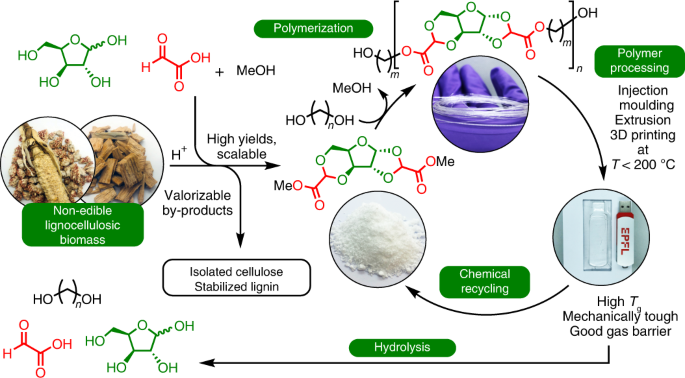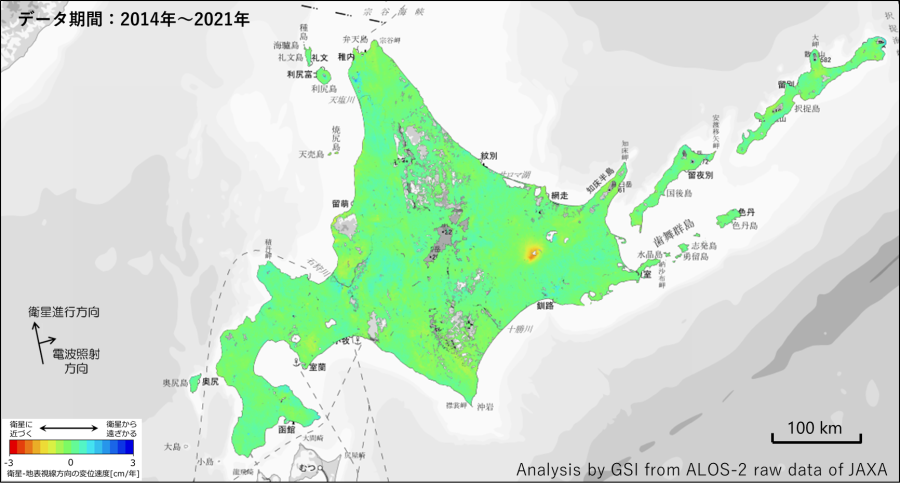2022-06-27 スイス連邦工科大学ローザンヌ校(EPFL)
ホルムアルデヒドの代わりにグリオキシル酸という異なるアルデヒドを用いることで、糖分子の両端に “粘着性 “の基をクリップで留めることができ、これがプラスチックの構成要素として機能するようになりました」と述べています。「この簡単な技術を使って、農業廃棄物の重量の25%、精製した砂糖の95%をプラスチックに変換することができる。
<関連情報>
- https://actu.epfl.ch/news/new-pet-like-plastic-made-directly-from-waste-biom/
- https://www.nature.com/articles/s41557-022-00974-5
リグノセルロース系糖質の直接官能基化によるサステイナブルポリエステルの開発 Sustainable polyesters via direct functionalization of lignocellulosic sugars
Lorenz P. Manker,Graham R. Dick,Adrien Demongeot,Maxime A. Hedou,Christèle Rayroud,Thibault Rambert,Marie J. Jones,Irina Sulaeva,Mariella Vieli,Yves Leterrier,Antje Potthast,François Maréchal,Véronique Michaud,Harm-Anton Klok & Jeremy S. Luterbacher
Nature Chemistry Published:23 June 2022
DOI:https://doi.org/10.1038/s41557-022-00974-5

Abstract
The development of sustainable plastics from abundant renewable feedstocks has been limited by the complexity and efficiency of their production, as well as their lack of competitive material properties. Here we demonstrate the direct transformation of the hemicellulosic fraction of non-edible biomass into a tricyclic diester plastic precursor at 83% yield (95% from commercial xylose) during integrated plant fractionation with glyoxylic acid. Melt polycondensation of the resulting diester with a range of aliphatic diols led to amorphous polyesters (Mn = 30–60 kDa) with high glass transition temperatures (72–100 °C), tough mechanical properties (ultimate tensile strengths of 63–77 MPa, tensile moduli of 2,000–2,500 MPa and elongations at break of 50–80%) and strong gas barriers (oxygen transmission rates (100 µm) of 11–24 cc m−2 day−1 bar−1 and water vapour transmission rates (100 µm) of 25–36 g m−2 day−1) that could be processed by injection moulding, thermoforming, twin-screw extrusion and three-dimensional printing. Although standardized biodegradation studies still need to be performed, the inherently degradable nature of these materials facilitated their chemical recycling via methanolysis at 64 °C, and eventual depolymerization in room-temperature water.


